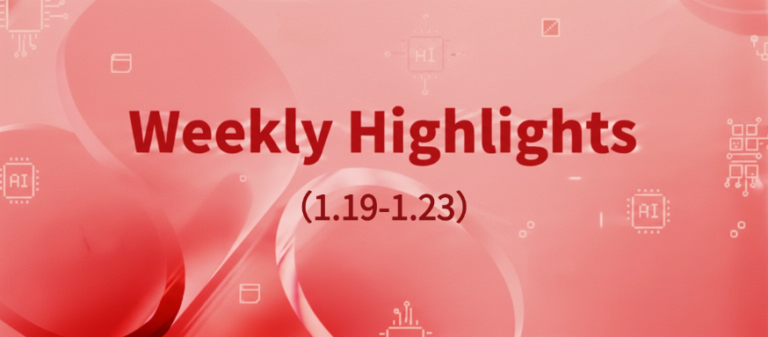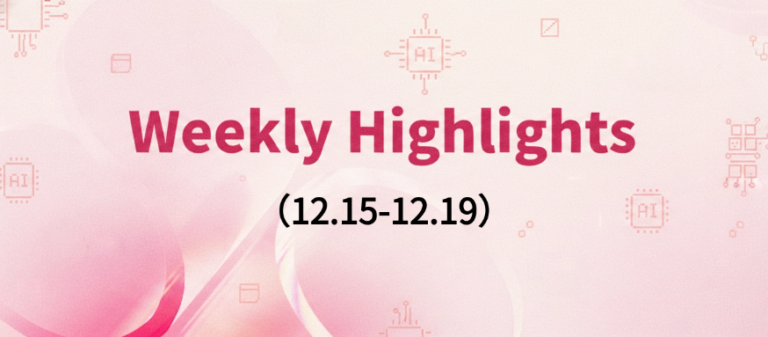Command Palette
Search for a command to run...
Initiated Wuhan 2020, He Was One of the First to "take the Lead" in Open Source Innovation in Universities
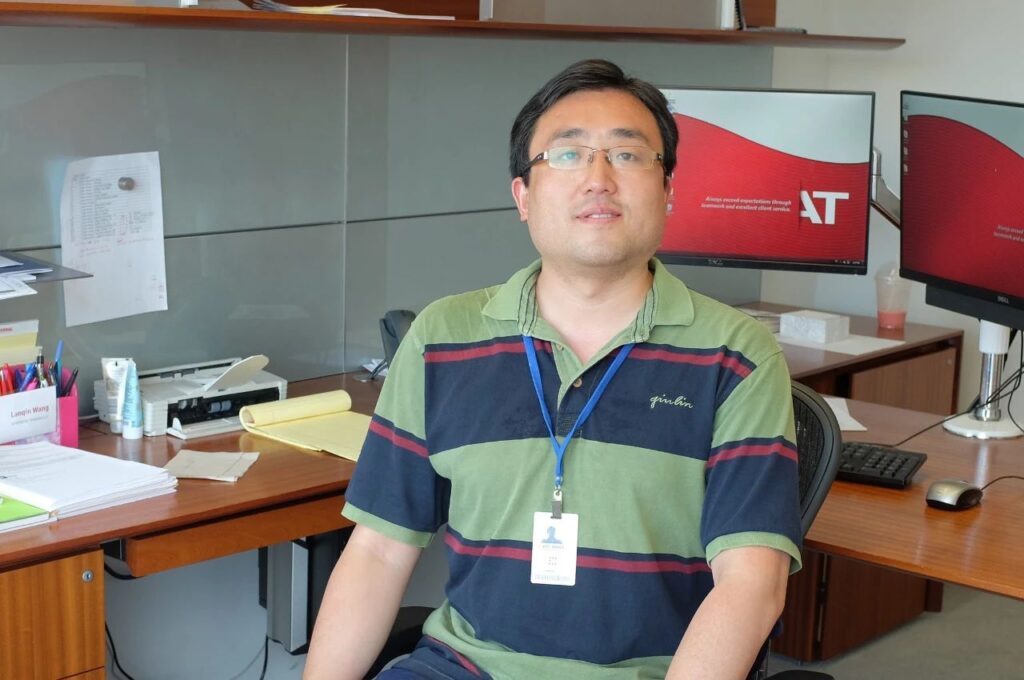
The new coronavirus outbreak at the beginning of 2020 swept across many parts of the country. In order to support Wuhan, the hardest-hit area, a group of people from all over the world spontaneously gathered together to contribute their strength in the form of open source.
At the beginning of the year, the new coronavirus pneumonia swept through many cities across the country. Wuhan, as the first city in the country to have a concentrated outbreak of infections, touched the hearts of people across the country.
On January 23, the 29th day of the twelfth lunar month, the day before New Year's Eve, Wuhan made the decision to "lock down the city" in order to strengthen epidemic prevention and control and control the spread of the virus. The entire city was suddenly put on pause, and the fear of the epidemic diluted the joy and peace of the Spring Festival.
Wang Wei, a teacher at East China Normal University in Shanghai at the time, was also nervous and worried. He turned his anxiety into strength and wisdom, and personally experienced this magical battle against the epidemic with the power of technology.
Wuhan2020: A local open source community before the epidemic
What can technology do for Wuhan during the epidemic? Wang Wei, who is also a teacher and a technology practitioner, is also thinking about this question.
Information asymmetry led to waste of resources and low circulation efficiency, which was the main contradiction at that time.Can we create an information platform to connect the suppliers and demanders of materials and allow authentic information to circulate on the platform?
On January 25, Wang Wei, at the suggestion of his student Zhao Shengyu, published an article on the official account.Call on everyone to fight the epidemic through open source.
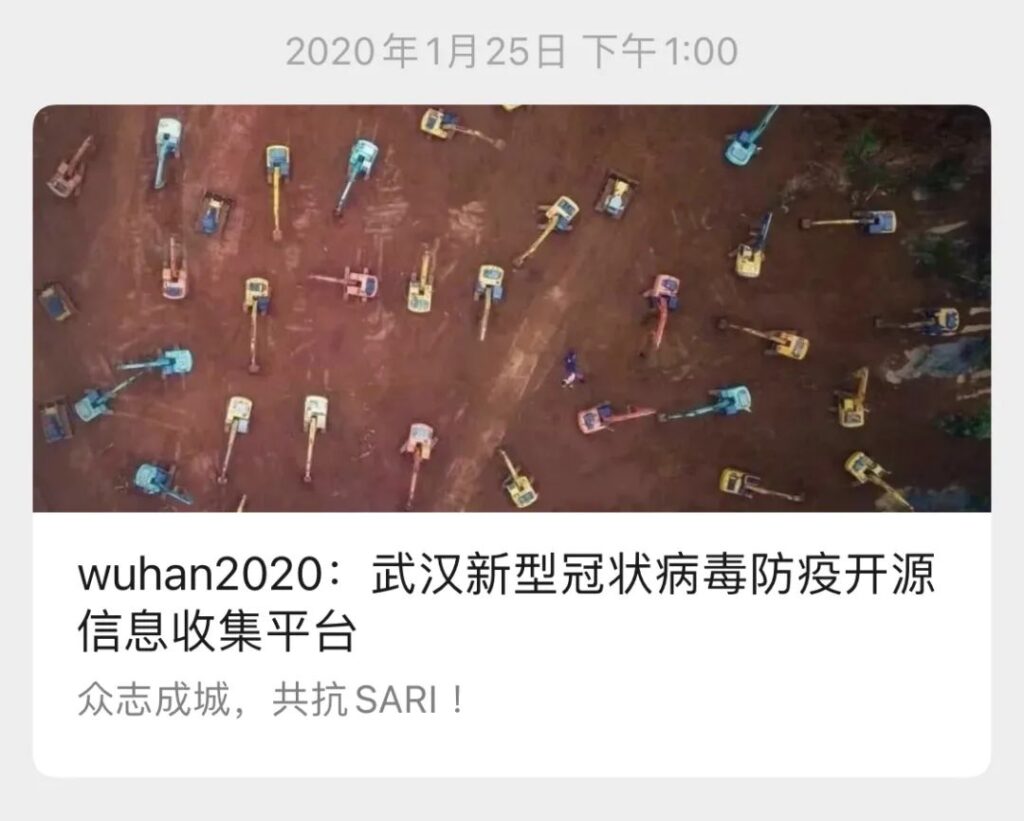
This article was successfully shared by many communities and friends, attracting people from all walks of life from all corners of the world to join in.At its peak, the project had more than 4,000 volunteers.
Since the establishment of the community more than 8 months ago, it has played an important role in epidemic maps, rumor refutation, and matching supply and demand, including development, design, and copywriting...All of this is completed through online communication and remote collaboration by volunteers.
Now that the epidemic is over,When we asked about the experience and inspiration gained from Wuhan2020,Teacher Wang Wei admitted that this was the first time that he and his core members organized such a large-scale, online open source community. Everyone gained a great sense of accomplishment, but some problems were also exposed.
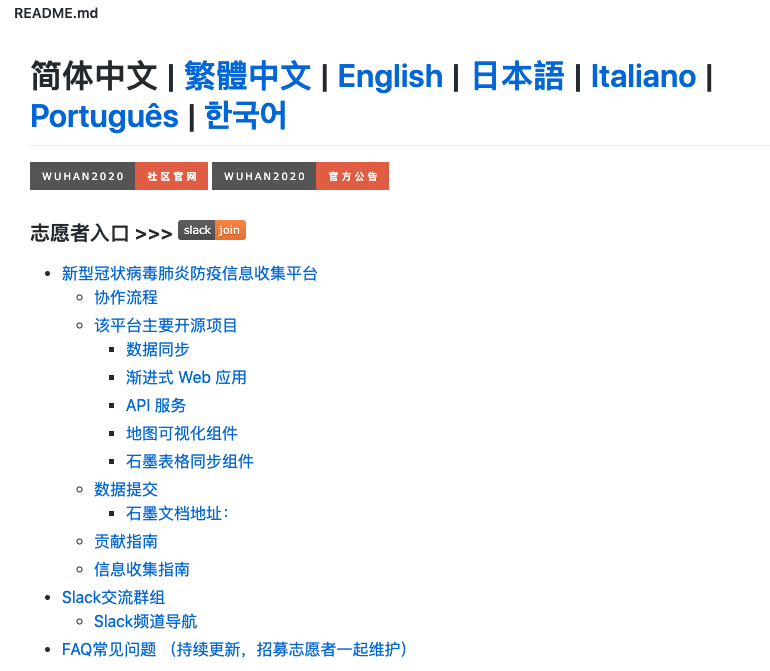
Project address: https://github.com/wuhan2020
The workflows and open source tools accumulated in the process of maintaining the community are a valuable asset, but there is still much room for improvement in the open source literacy and capabilities of community members.
Professor Wang Wei also shared with us his experience summarized in Wuhan2020 on how to evaluate the development status of an open source community.
First, develop open source health indicators.Quantify the operating status of the open source community, such as project rankings, activity, contributor diversity, etc.Second, score the health indicators and provide solutions.
Many foreign schools and foundations are doing this, such as the famous Apache Foundation.Compared with foreign countries, the current situation of open source in China is still somewhat immature.
To build a domestic open source atmosphere, we need more doers
In addition to being a teacher, Mr. Wang Wei is also very active in the industry.
CEO of Open Source Society, founder of X-lab Open Laboratory, advocate of China's first open source education fund, 2020 China Open Source Outstanding Contributor...These labels are like buttons that are gently pressed, opening one door after another to the domestic open source craze, allowing Professor Wang Wei to have a deeper understanding of the current situation of domestic open source.
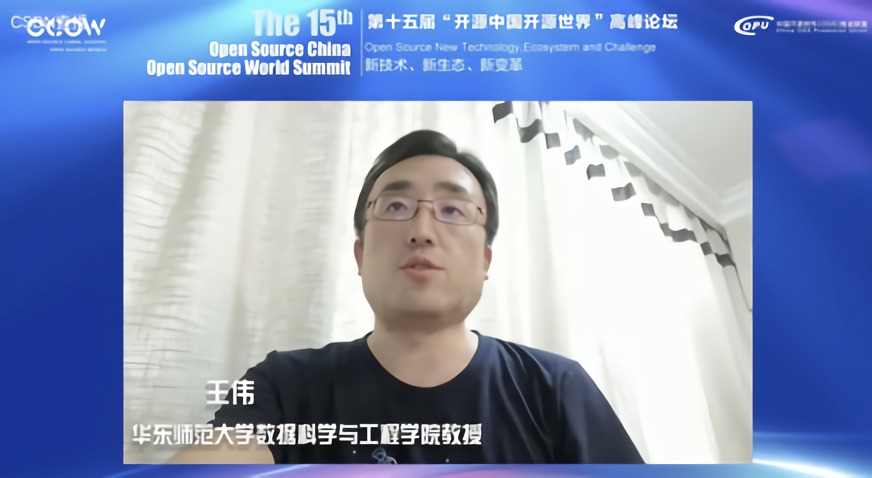
In Wang Wei's opinion, open source started late in China and lacks the necessary experience and support, so its development is not yet systematic.
We learned from the Internet that Professor Wang Wei participated in many open source projects combining industry and academia during his time at school.The cooperating companies include domestic giants such as Alibaba and Huawei, as well as foreign companies such as IBM and Microsoft.
So what are the differences between domestic and foreign companies in their approach to open source projects? How did this difference come about? Professor Wang Wei gave his answer based on his own experience.
He believes thatThe open source projects of major domestic companies mainly rely on self-promotion.For example, companies may do external publicity and hold meetups, and updates and iterations mainly rely on internal employees.
On the contrary, many foreign companies have high-quality open source projects.Contributors from outside the company far outnumber internal employees.In this way, the company's development and maintenance costs will be reduced, and the output will be far higher than the investment, which will encourage companies to open source more projects and form a virtuous circle.
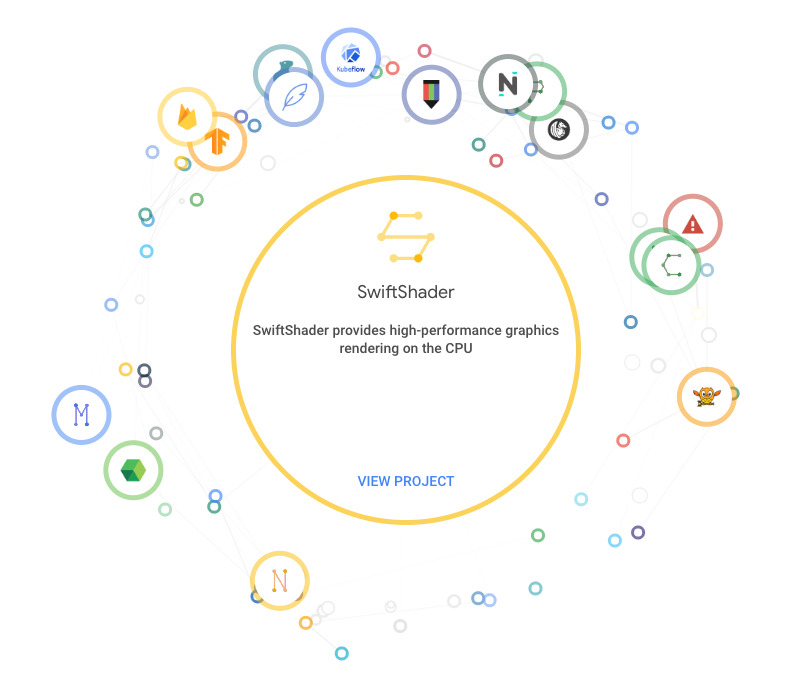
The main reason for this difference isTeacher Wang Wei believes that one of the reasons is thatDomestic open source foundations and companies are not ready yet.
This means that open source governance can only be handled by the major companies themselves, but the major companies are not "experts" in this matter.There is not only a lack of open source contributors, but also a lack of professionals who understand the system behind open source governance.
In addition to the heavy business pressure and insufficient revenue generated by open source projects, companies have limited energy to invest in open source. This has also led to open source remaining at the "ecosystem construction needs" level and has never been promoted to a strategic level.
If domestic enterprises really want to make good use of open source, according to Professor Wang Wei, they must do three things:Profitability is the premise, leadership attention is the foundation, patience and perseverance are the key.
Only by implementing these principles can we continuously increase our contribution to open source and enhance our influence in the open source world.
After crossing the ocean, I realized what the campus needs more
Visiting experience at the University of Wisconsin-Madison and the University of Florida,This made Mr. Wang Wei, who is also an educator, deeply touched.
Foreign universities attach great importance to open source education and will offer subjects and specific courses for this purpose;However, when we look back at the development of open source education in domestic universities, we often find a vast wasteland. The booming computer and artificial intelligence related majors have gently pried open a corner of the frozen soil of "open source", but this is far from enough.

This is mainly due to the differences between the higher education systems in China and abroad.First of all, compared with open source contributions, China pays more attention to paper publication and awards. The difference in evaluation systems leads to a lack of motivation for domestic teachers and students to contribute to open source.
The second is the different degrees of integration between industry and academia.American universities and businesses are closely connected, which promotes the spread and development of corporate open source projects within schools; domestic businesses and universities are relatively fragmented and disconnected, and the vast majority of open source projects are still in commercial companies.
After returning to China, Professor Wang Wei brought these thoughts to his work. Since there were few open source resources on campus, he encouraged students to "go out" and join the open source community in the industry and actively participate in activities and competitions regularly held by large companies, helping students broaden their access to open source.
In the first semester of the 2019-2020 school year, Wang Wei also joined forces with several major domestic companies and open source communities, including open source evangelists,The first in-depth open source practice course "Open Source Software Design and Development" was opened at East China Normal University.
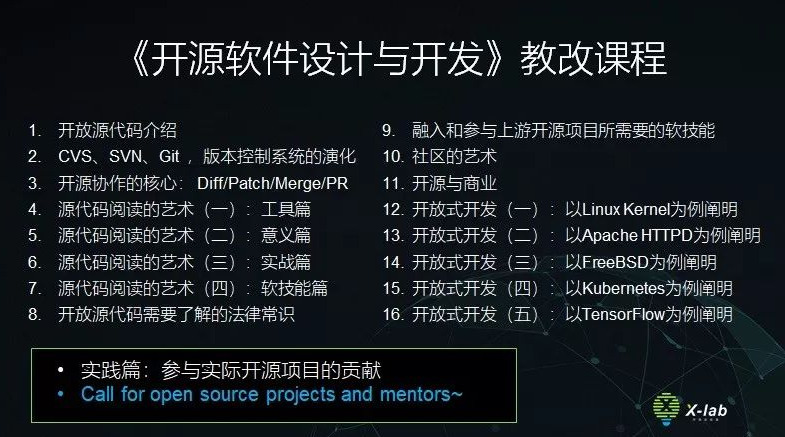
Teacher Wang Wei regards the school as a "good experimental field for open source education".This experimental field provided him and his classmates with a platform for joint exploration. With the continuous iteration of the course, Teacher Wang Wei was able to adapt to local conditions and create open source education that is more suitable for Chinese students.
The efforts of the school and teacher Wang Wei can help students get in touch with the most advanced technologies, the most advanced concepts, meet the best like-minded people, and improve their "personal qualities and spirit of collaboration."
COSCon'20 registration is in progress, Professor Wang Wei is waiting for you
The 2020 China Open Source Conference (COSCon'20), the most influential annual open source event in the industry, will be held on October 24-25.This year's guest sharing will be a combination of online and offline formats, discussing the theme of Open Source for Good from 11 directions including artificial intelligence, open source governance, data technology, education and charity.
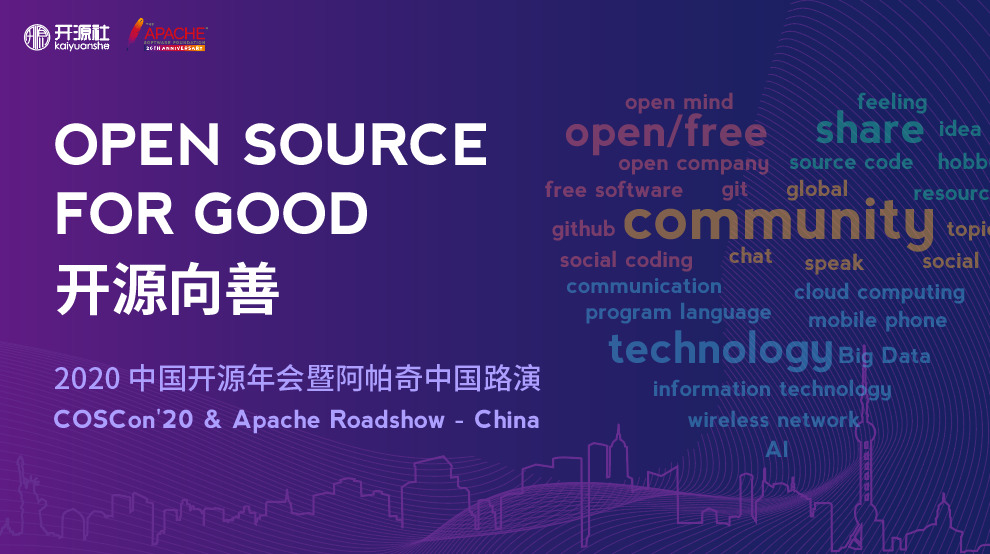
Teacher Wang Wei not only served as the producer of the Education and Charity Session, but also delivered a keynote speech at the conference and released"2020 China Open Source Annual Report (Preview Version)".
You canVisit the following link, or clickRead the original articleSign up now. The event is in full swing, and we look forward to your participation!
Registration link or click to read the original text:
https://www.bagevent.com/event/6840909
-- over--






